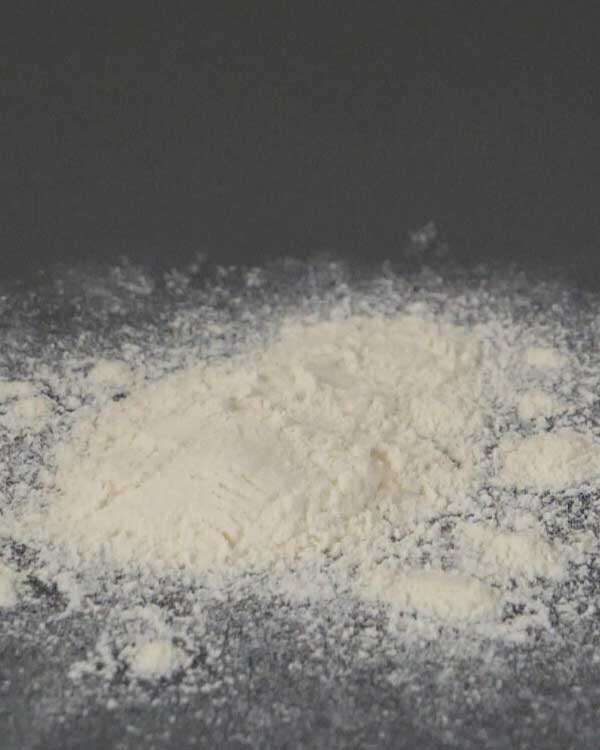Guar Gum
Guar gum is used to make emulsions, for marbling colors, and to thicken water-based paint.
Source
Guar gum is the ground endosperm of guar beans. The guar seeds are dehusked, milled, and screened to obtain the guar gum. Our guar gum is produced in Pakistan as a free-flowing, pale, off-white, fine ground powder, greater than 200 mesh.
Guar gum is a polysaccharide composed of the sugars galactose and mannose. Guar gum is more soluble than locust bean gum and is a better emulsifier. Unlike locust bean gum, it is not self-gelling. However, either borax or calcium (soluble calcium compounds, such as calcium chloride, are more effective) can cross-link guar gum, causing it to gel. In water, it is nonionic and hydrocolloidal. It is not affected by ionic strength or pH but will degrade at pH extremes. It remains stable in solution over the pH range of 5-7. Strong acids and alkalies can reduce its viscosity in solution.
Applications
Thickening: Guar gum shows high low-shear viscosity but is strongly shear-thinning. It is very thixotropic above 1% concentration, but below 0.3% its thixotropy is slight. It has a much greater low-shear viscosity than that of other hydrocolloid gums. Guar gum shows viscosity synergy with xanthan gum. Guar gum and casein mixtures can be slightly thixotropic.
Use to thicken water-based paints, such as watercolor and casein paints.
Emulsifying Agent: Guar gum has almost 8 times the water-thickening potency of cornstarch—only a very small quantity is needed for producing sufficient viscosity. Thus it is used effectively as an emulsifier because it helps to prevent oil droplets from coalescing, and as a stabilizer, because it helps to prevent solid particles from settling.
| SKU | 510-52GUG |
|---|---|
| Brand | Rublev Colours |
| Vendor | Natural Pigments |
| Processing Time | Usually ships the next business day. |
Health & Safety: There are no acute or known chronic health hazards with the anticipated use of this product (most chemicals are not thoroughly tested for chronic toxicity). Protect yourself against potentially unknown chronic hazards of this and other chemical products by avoiding ingestion, excessive skin contact, and inhaling spraying mists, sanding dust, and concentrated vapors from heating. Contact us for further information or consult the SDS for more information. Conforms to ASTM D-4236.



